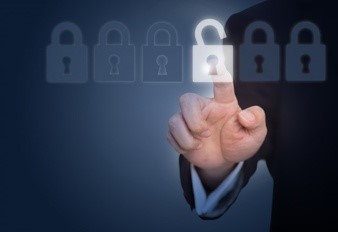

2022/03/19 IT & Cyber-Security Solutions 458 visit(s)
Cetelecoms

Now it’s 2022 and we can all agree that every information ever can be accessed on the internet one way or another, and your personal data aren’t that different.
A single company may possess the personal information of millions of users and customers, data that must be kept private so the client’s identity, card numbers, and other personal information stay as safe as possible, by that keeping the company’s reputation untarnished.
However, in a world where data breaches are on the rise and hackers are getting more creative by the second, what can you do as a regular user or an organization to keep data safe? We’ll find out together in the next few lines…
Data Privacy relates to how pieces of information ot data should be handled based on their relative importance. For instance, you wouldn’t mind sharing your name with a stranger in the process of introducing yourself, but you would mind sharing other information like your social security number!
In the business world, data privacy goes beyond what we call personally identifiable information or PII of employees and customers. It also includes the information that would help a company operate.
Let’s agree that no one would like their personal data to be in the wrong hands, which means potential identity theft, private data being sold and shared and more!
For example, a data breach at a government agency can put top-secret information in the hands of an enemy; while a breach at a corporation can put proprietary data in the hands of competitors, and so on!
So, nowadays and in other words, a data breach can be the same as someone breaking into your house and a data leak or theft is the same thing as having your most precious properties stolen.
The first thing you should do is to get to know the enemy. We share our data online in many ways, like posting random information, sharing card numbers on websites and even sharing pictures! Therefore you ought to know whom you’re sharing all your data with.
Try to keep your social accounts private, if not, think twice about what you share there.
As for websites and services, make sure to know why they need to know all that about you and make sure you’re using a secured connection when submitting such data.
If you feel that the website or service you’re using is not transparent enough with you, meaning it’s not clear why they are asking you for your data or what they’re doing with it then simply don’t rush.
You can try emailing the service provider and ask for more information or explanations, and in case you find it suitable you can go ahead and proceed.
You need to rank your data according to risk and sensitivity. You might discover that if certain data is stolen or lost, it could significantly damage your relationship with your clients or your own business operations.
Having a sense of what data is at risk during a breach, for example, could help the security team harden defences and strategize how to protect the enterprise’s data.
In an organization, it’s really critical to identify the role of each user and know who has access to what? You may find that some of your end-users have privileged access to sensitive data that they should not hold.
You might also find that these users are transmitting or storing sensitive data that poses a high risk for loss.
So, what you can do is revise the security policies to remove privileged access to sensitive data sources, while protecting endpoints from data exfiltration with the appropriate security technologies.
The good thing for users now is that organizations can be fined if they don’t report security incidents to authorities under global data privacy laws. Therefore, it’s important that your security team can quickly monitor and detect security incidents or breaches as soon as they happen.
According to FireEye, the average dwell time for a cuber breach is 146 days, and that’s a lot! Having the ability to monitor and detect threats in real-time is a game-changer.
The risk of not detecting various cyber threats puts your organization at risk of a major data breach.
Data privacy should be the number one concern for any user or enterprise, and at Ctelecoms, we take our clients’ security very seriously.
To make sure all your data is private, connections are secured, and devices are un-hackable all you have to do is contact our team for full support: https://www.ctelecoms.com.sa/en/Form15/Contact-Us